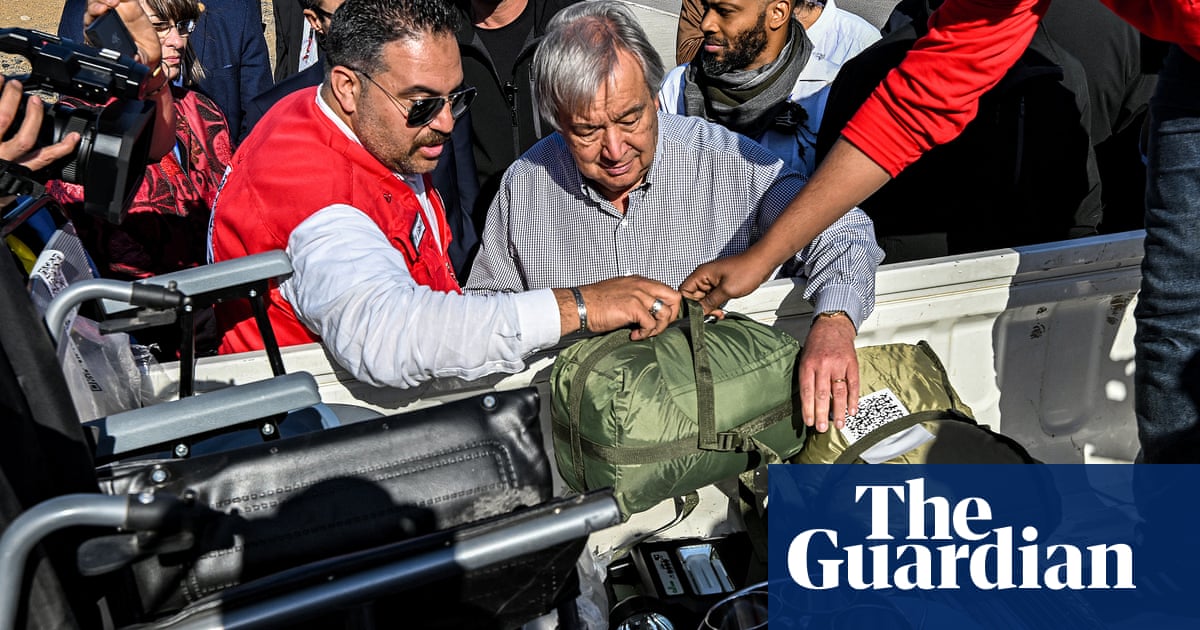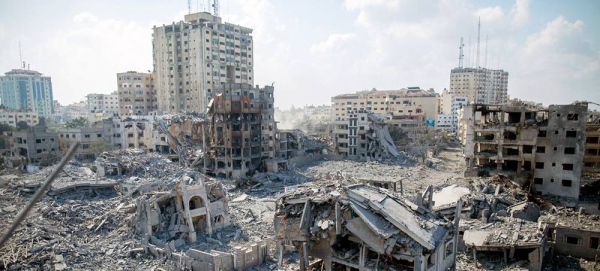
An immediate nationwide ceasefire is needed across Syria to enable an "all-out-effort" to stamp out the coronavirus and prevent it from ravaging a beleaguered population, the United Nations and the International Committee of the Red Cross said on Tuesday.
The regime in Damascus has so far only reported one case of COVID-19 but fears are high that the virus could spread rapidly among the war-battered countrys most vulnerable communities.
"Syrians are acutely vulnerable to COVID-19. Healthcare facilities have been destroyed or are degraded," said Geir Pedersen. "There is a shortage of key medical equipment and health professionals."
The aid community has warned that Syria, where around a million people have been displaced by conflict in the northwest since December alone, is particularly vulnerable.
"To confront this danger, the long-suffering Syrian people desperately need a sustained period of calm throughout the country respected by all parties," Pedersen said.
He called for the mass release of detainees, demanded full and sustained humanitarian access to all parts of the country and urged donors to heed dedicated funding appeals.
The International Rescue Committee this week warned that an outbreak of novel coronavirus in northern Syria could be one of the worst the world has seen.
Quick action needed
"We cant dedicate time and energy to what the pandemic response requires and at the same time be addressing the emergency needs of people recently displaced or destitute,” Fabrizio Carboni, ICRC regional director for the Near and Middle East, said in an interview with Reuters.
Carboni disclosed that the Swiss-based aid agency has asked Syrian authorities to allow it to help with infection prevention measures and to provide hygiene supplies at nine central prisons.
"Now we hope that the authorities will answer positively very soon to our proposal," he said. "We believe that people detained and displaced are even more vulnerable than the general population."
The ICRC, whose largest humanitarian operation worldwide is in Syria, is the only agency allowed into its detention centers - where some experts estimate some 130,000 people are held.
Carboni said that while Syrian health officials say the number of cases is quite limited, quick action is needed to halt a spread, including the provision of clean water.
"Even if there are five or 10 cases, our work would still be to focus on making sure that water reaches people because without water you cant wash your hands," he said.
In al-Hasakah, the largest city in the northeast, a pumping station providing water to 800,000 people has been out of operation for three days and needs repair, he said.
"We installed 45 water tanks all around the city and are water trucking until we can fix this pumping station and can have access," Carboni said.
The focus across Syria must be on prevention, he said.
"Because when they start having cases, and if it gets out of hand, its going to be very, very difficult to address, as we can see in many Western countries where they have way more sophisticated health systems," Carboni said.
He also noted the difficulties of putting in place general health guidance for containing the spread of the coronavirus.
"The way to address the pandemic is to stay home," Carboni said. "But when you are an IDP (internally displaced person), you dont have a home. How do you do that? Certainly, social distancing becomes a luxury."












